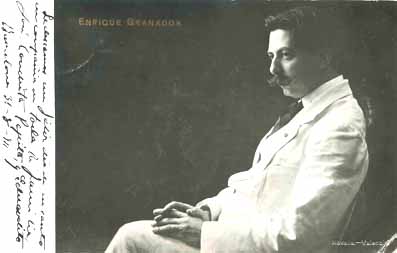
Yellow Barn welcomes soprano Laura Strickling, pianist Liza Stepanova, and Venezuelan-American composer Reinaldo Moya for a residency of love songs honoring turn-of-the-century Spanish composer Enrique Granados (1867-1916). The residency explores two major works: Canciones amatorias, a collection of songs by Granados set to Renaissance Spanish love poems, and Ciudades del Porvenir (Cities from a Future to Come), a newly commissioned Spanish-language song cycle by Moya. On Sunday, December 18, Strickling and Stepanova will culminate their residency with a performance of Granados’ Canciones amatorias and the world premiere of Moya’s Ciudades del Porvenir at Next Stage.
Stepanova met Moya while they were both attending graduate school at Juilliard, and she has performed several of Moya’s works over the past few years.
When Laura and I were considering a commission in connection with the Granados project, his name immediately came to mind. His music is always beautiful and speaks directly to the audience. I recall hearing excerpts from his powerful opera "Generalissimo" at Symphony Space in New York and knew that he could write very effectively for voice. Additionally, I hardly know a more avid book reader than Reinaldo. He has wide-ranging literary tastes, and it was not surprising that he immediately got to work selecting love poetry to match the impact of the Granados verse. I am very much looking forward to working on the result: the songs are gorgeous and I am excited to discuss poetry with Reinaldo that was written in his native language.
—Liza Stepanova
Moya writes of his new work:
The song cycle Ciudades del Porvenir (Cities from a Future to Come) consists of a pair of settings of the poetry by the young Mexian poet Yaxkin Melchy. I was attracted to his whimsical, almost surrealistic writings. I could sense that underneath the often sharp contrasts on the surface, there was a real human and moving quality to his poetry. The two songs work as kinds of foils to one another with El Corazón Humano (The Human Heart) being the louder, darker sibling ot the more quietly expansive Ciudades del Porvenir (Cities from a Future to Come).
—Reinaldo Moya
